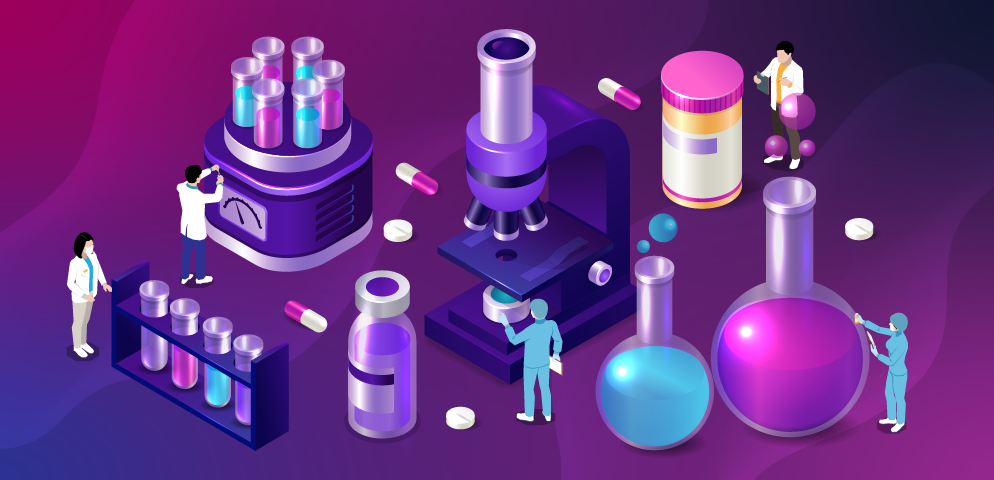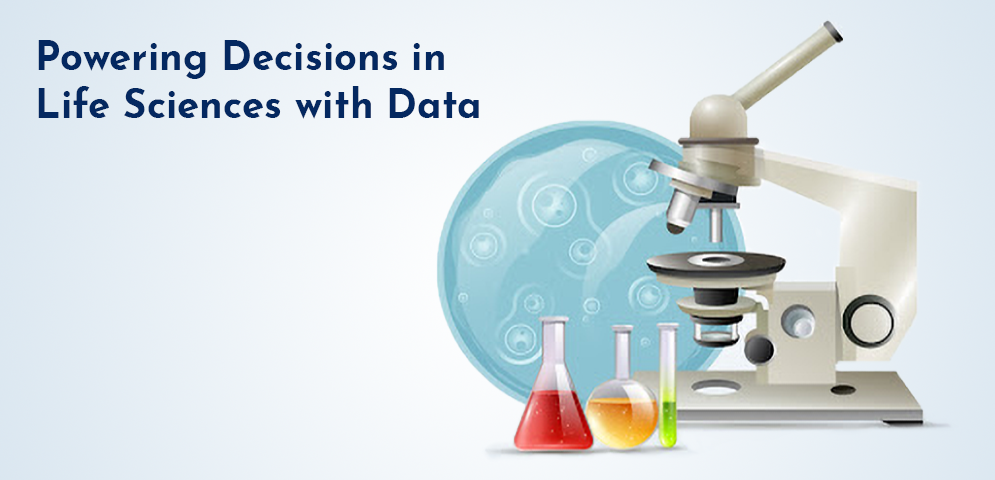
Noteworthy Developments in the Pharma and Biotech Industry
The pharma and biotech industries are undergoing rapid changes due to the development of several technologies. A 2021 survey revealed that 70% of pharma industry clients anticipate drug development to be the most impacted in 2022 by technologies, like Artificial Intelligence, Machine Learning, and Natural Language Processing.
In this article we will explore developments and trends in RnD, Data Analytics, Pharmacovigilance, and their impact on Drug Development.
Rise in the need of data management in clinical trials and drug discovery:
Accelerating research is something that the life sciences industry is always working towards, so that drugs and treatments can be developed faster. Clinical trials and drug discovery are seeing breakthroughs mainly because of innovative research methods, and analytical procedures. Better collaboration between diagnostics companies and pharma companies is helping to prove the efficacy of drug candidates early in the drug development process.
But there are many challenges confronting this goal. Life sciences data is not only siloed but that which is publicly available is disparate. Scientists may use different assumptions and parameters in defining the experiment protocol, making the results of their experiments incomparable.
Data needs to be contextualised from thousands of publicly available life science sources, including clinical research, experimental studies, published chemicals and their preclinical studies. Efficient mining, validation and integration of clinical trial data is crucial for drug discovery and development, as well as any area of clinical data management.
Role of AI in drug discovery and development:
Research and development is crucial for sending drugs to market. AI technologies accelerate the process of drug discovery and development, and such technologies are being used to address various challenges in the manufacturing of drugs. Patient identification is a crucial step in the drug discovery and development process, especially for conducting clinical trials. AI simplifies the identification of eligibility criteria and the inclusion of patients and also makes the cohort identification process faster and cheaper.
Role of blockchain in data security
Large volumes of data are generated during the drug discovery and development process, while at the same time the data in this industry is of a very sensitive nature. Today many pharma companies use third parties to share data with collaborators, making data management a crucial area of focus. Therefore blockchain technology is very significant for the pharmaceutical industry in every stage of the production and distribution of drugs.
Blockchain technology gathers and stores information in groups, also referred to as “blocks,” and each block can hold a certain amount of data. Blockchain’s inherently decentralized nature makes it the perfect technology for cybersecurity.
Blockchain technology can also help to stop fake medicines and low quality drugs that affect the health and even kill thousands of patients every year. Therefore blockchain could be a promising solution for tracking and securing the pharma transaction ecosystem.
Data Analytics and Drug Development
In 2022, one of the trends in biotech is the continued improvement and development of drug research, which leads to improving and assessing diagnosis and treatment using medications.
Machine Learning algorithms can assist in finding out the effectiveness of certain drugs over others. This can boost predictive medicine and make it possible to track the effects of different therapies on groups of patients over time. Big data analytics allows health care professionals to select treatment plans that are tailor-made for the unique needs of their patients.
Big data and analytics can identify specific patterns in clinical trial results and enhance drug development. With the right partners and regulatory expertise there can be a lot of advancement in this field.
Trends in R&D
The developments in R&D in 2022 are leaning towards bringing down the cost of R&D while improving its efficiency. There will be continued high-tech digital transformations in R&D, which can help pharma organisations refine multiple processes like identifying appropriate drugs for specific conditions, running cost-effective trials for drug design, accurately allocating resources to start and change medical treatments, improving algorithms for drug research and development, valuable insights into business strategies, gathering health data more efficiently, improving patient engagement etc.
For these reasons many industry leaders consider R&D to be one of the key priorities for their business development in the next five years. Life-sciences companies worldwide aim to refine the production cycle with AI, ML, cloud technology, and other digital investments over the coming years.
Expansion of the Pharmacovigilance market
There has been a surge in the number of global databases in recent years, which is causing the industry to be oversaturated with data. This can hamper the detection of either positive or negative trends in the industry. Excessive data distortion can prevent companies from identifying medication errors, off-label use cases, acute and chronic poisoning, as well as many other harmful drug effects.
Another valuable need is to develop safe and effective medication, building secure preclinical and clinical software, which requires high-quality data for critical decision-making and risk assessment. That is why the pharmacovigilance market is expanding rapidly and there will be a greater focus on it in the coming years.
Development of the Pharmacovigilance Outsourcing industry in Life Science Research and Reporting
[dsm_perspective_image src="https://www.ascentrik.com/wp-content/uploads/2022/01/Dec-blog.png" alt="The Impact of Data Cleansing and Validation on your Marketing Efforts" title_text="Pharmacovigilance outsourcing" align="center" force_fullwidth="on"...
Technology and the Future of Life Science Innovation
[dsm_perspective_image src="https://www.ascentrik.com/wp-content/uploads/2020/11/powering-decisions-in-life-sciences-with-data-1.png" title_text="powering decisions in life sciences with data 1" align="center" force_fullwidth="on" _builder_version="4.6.6"...

